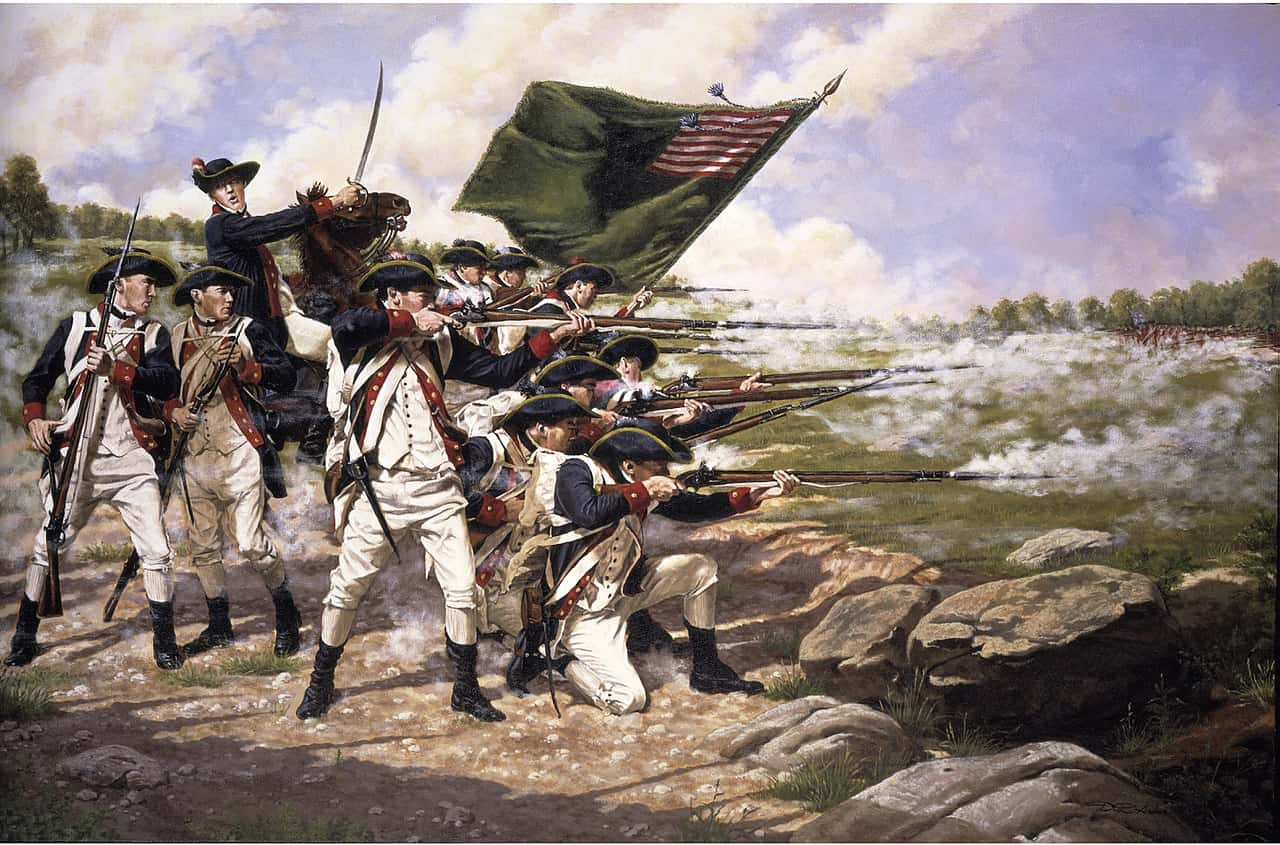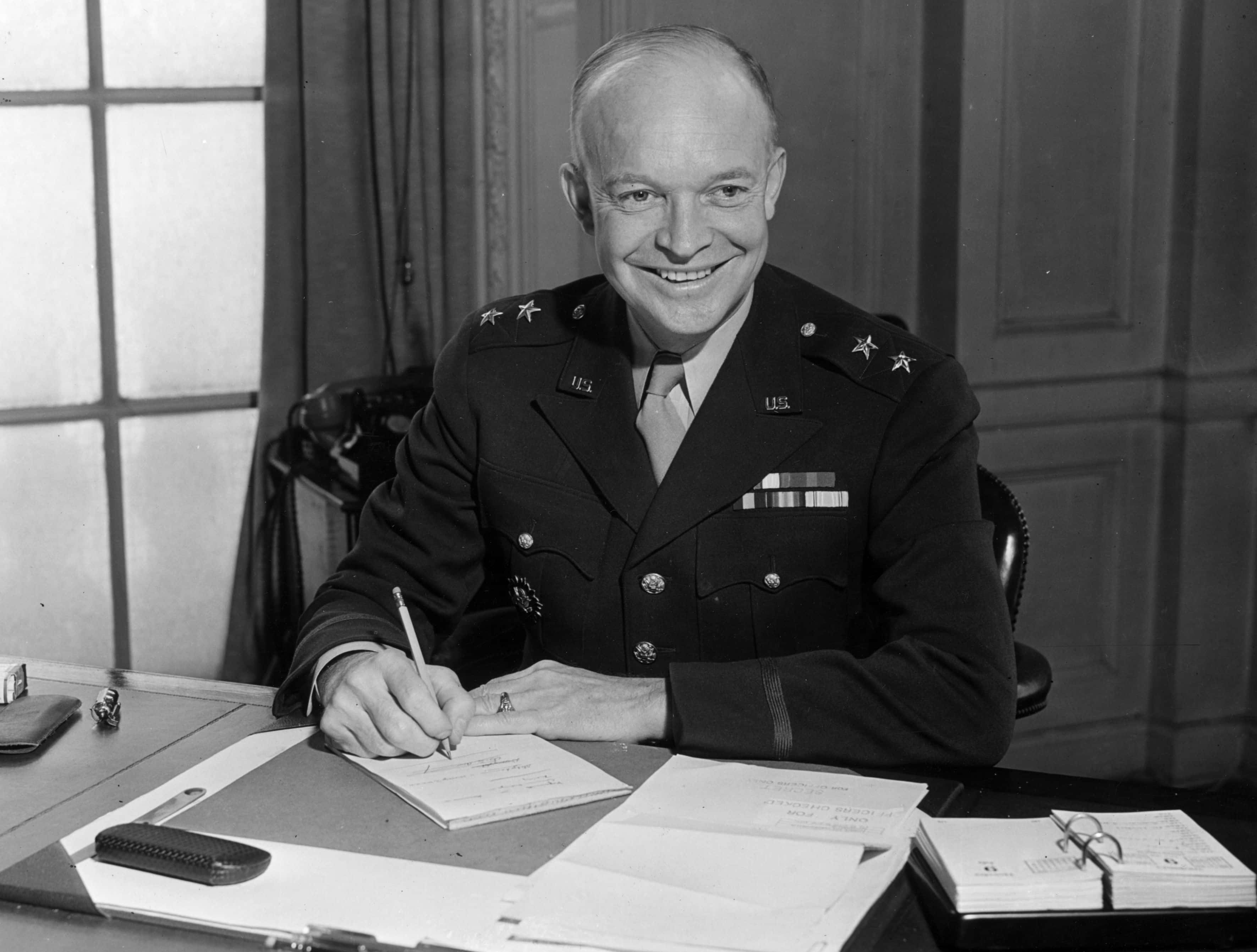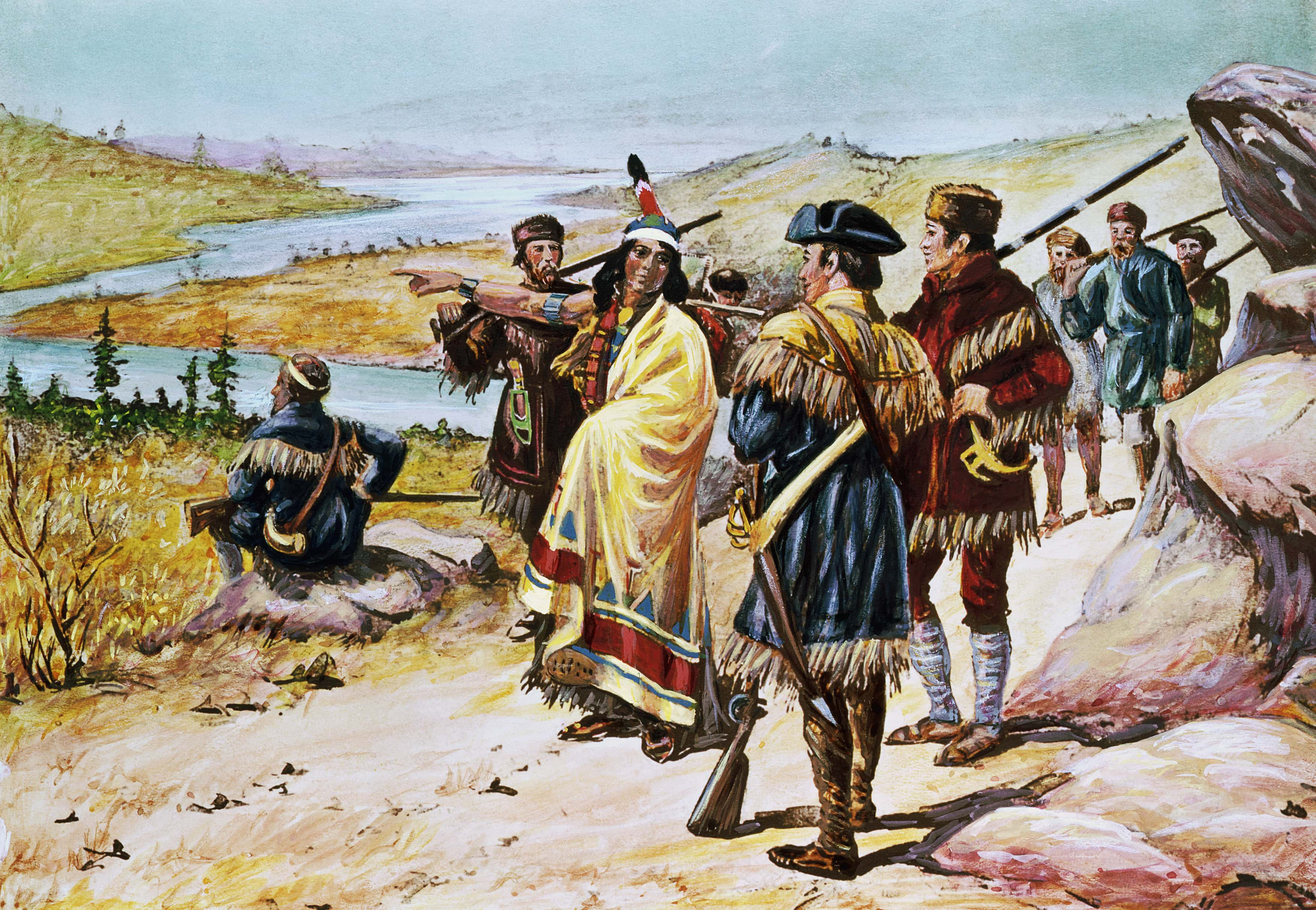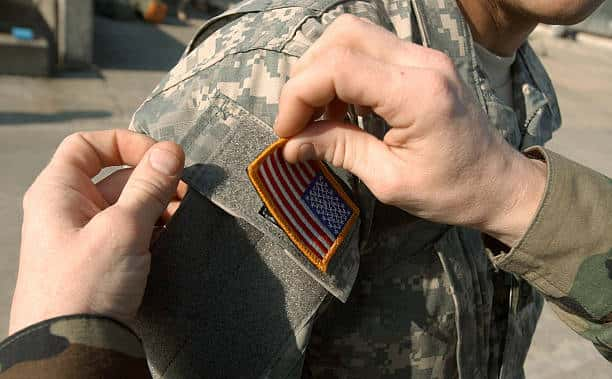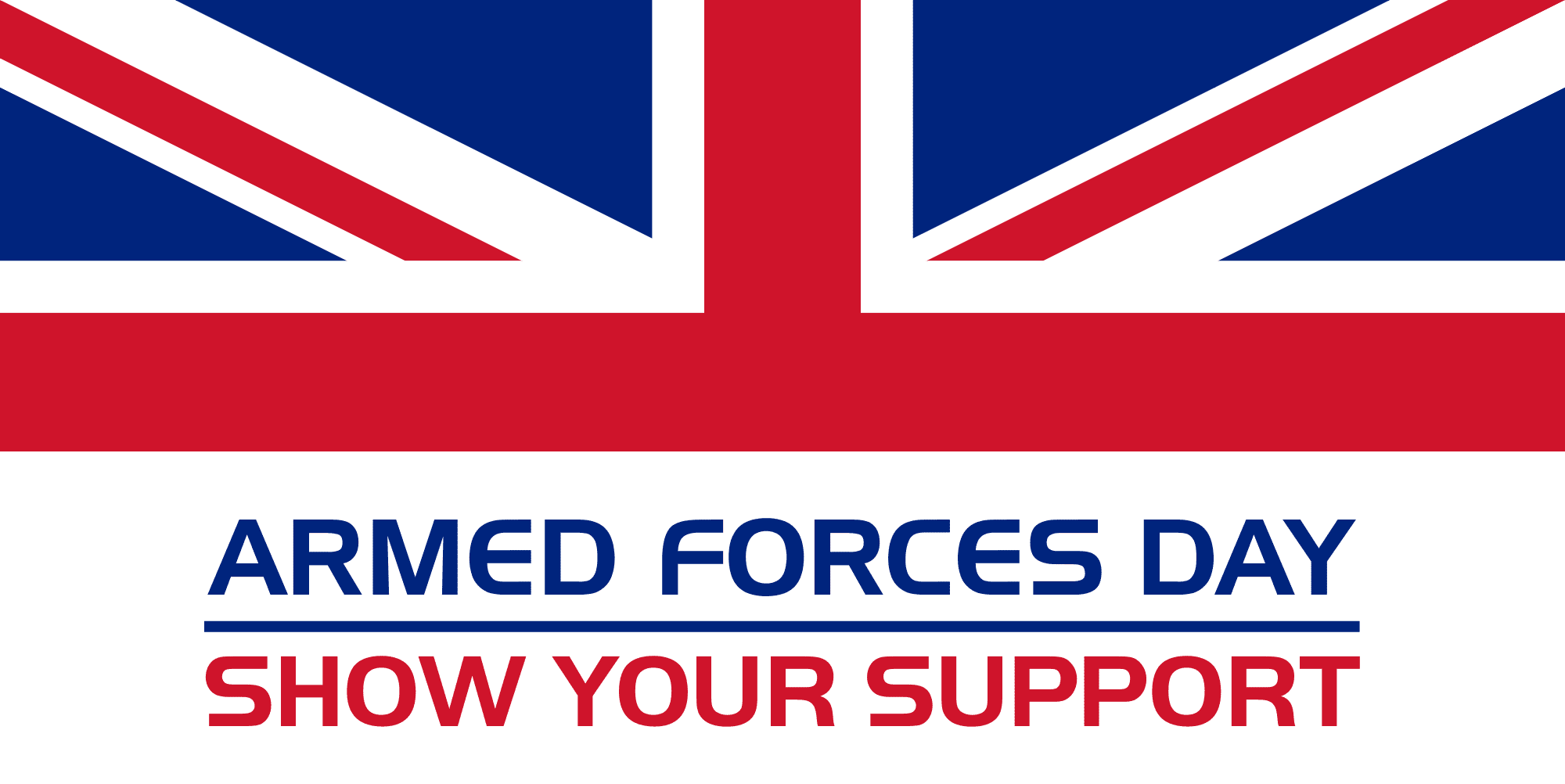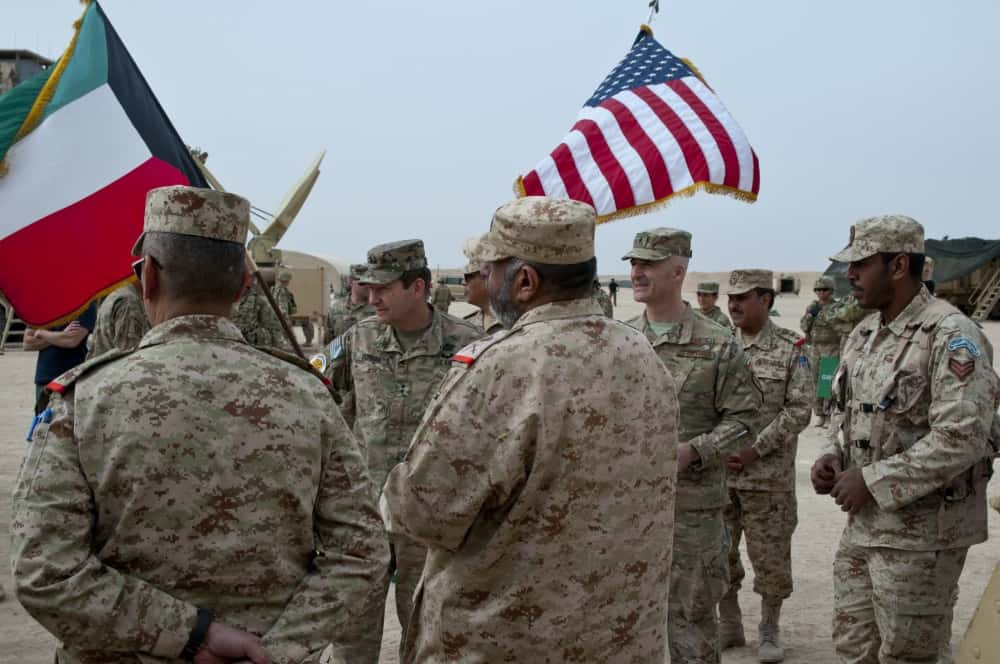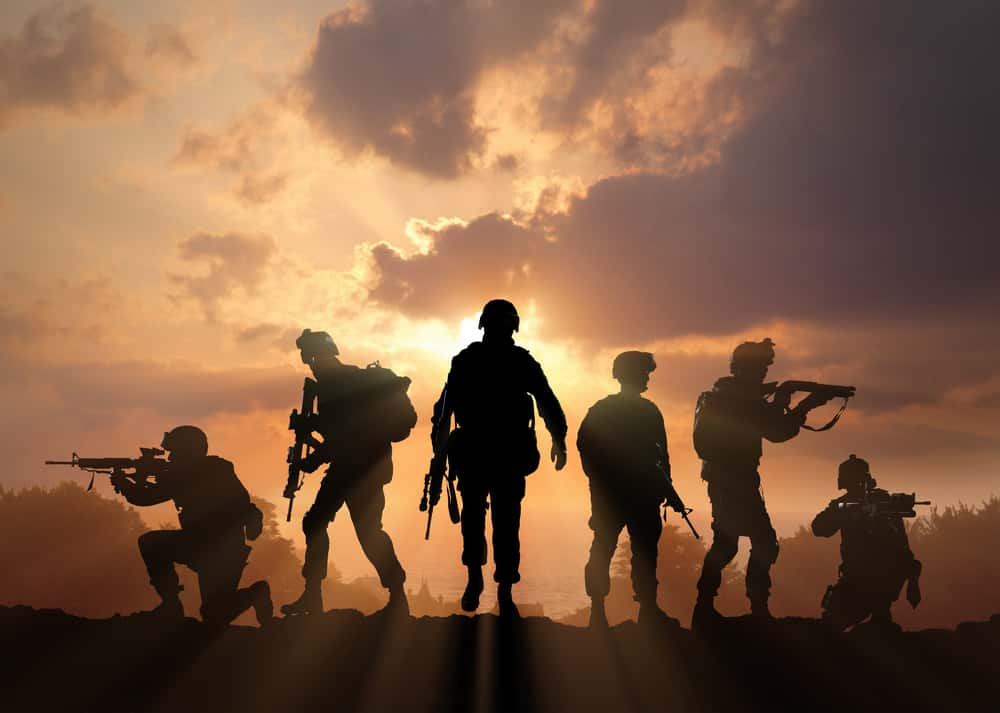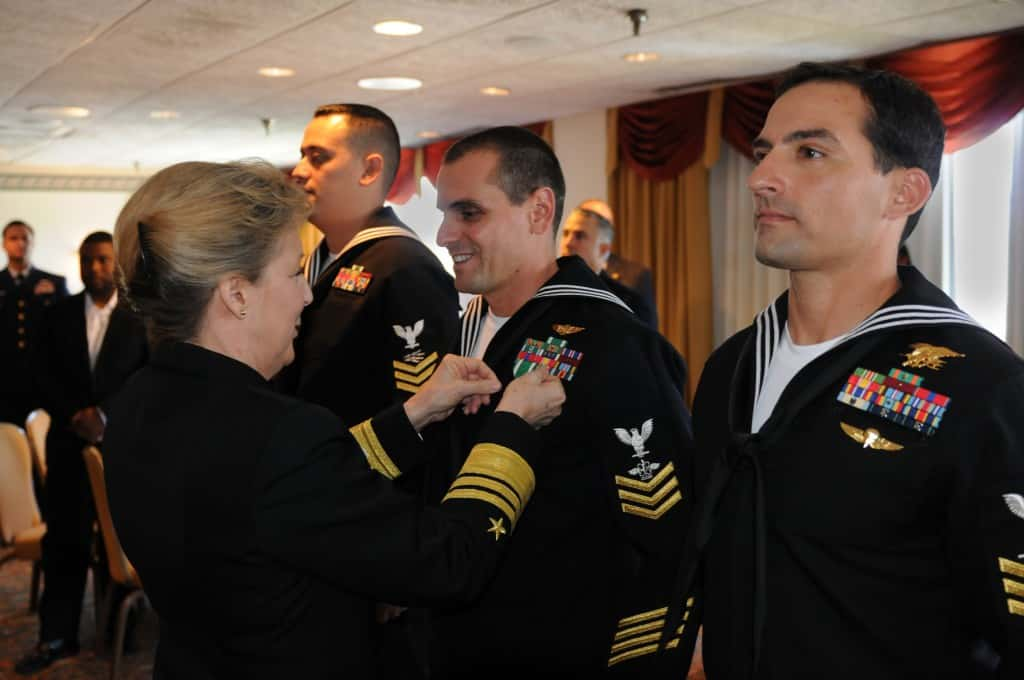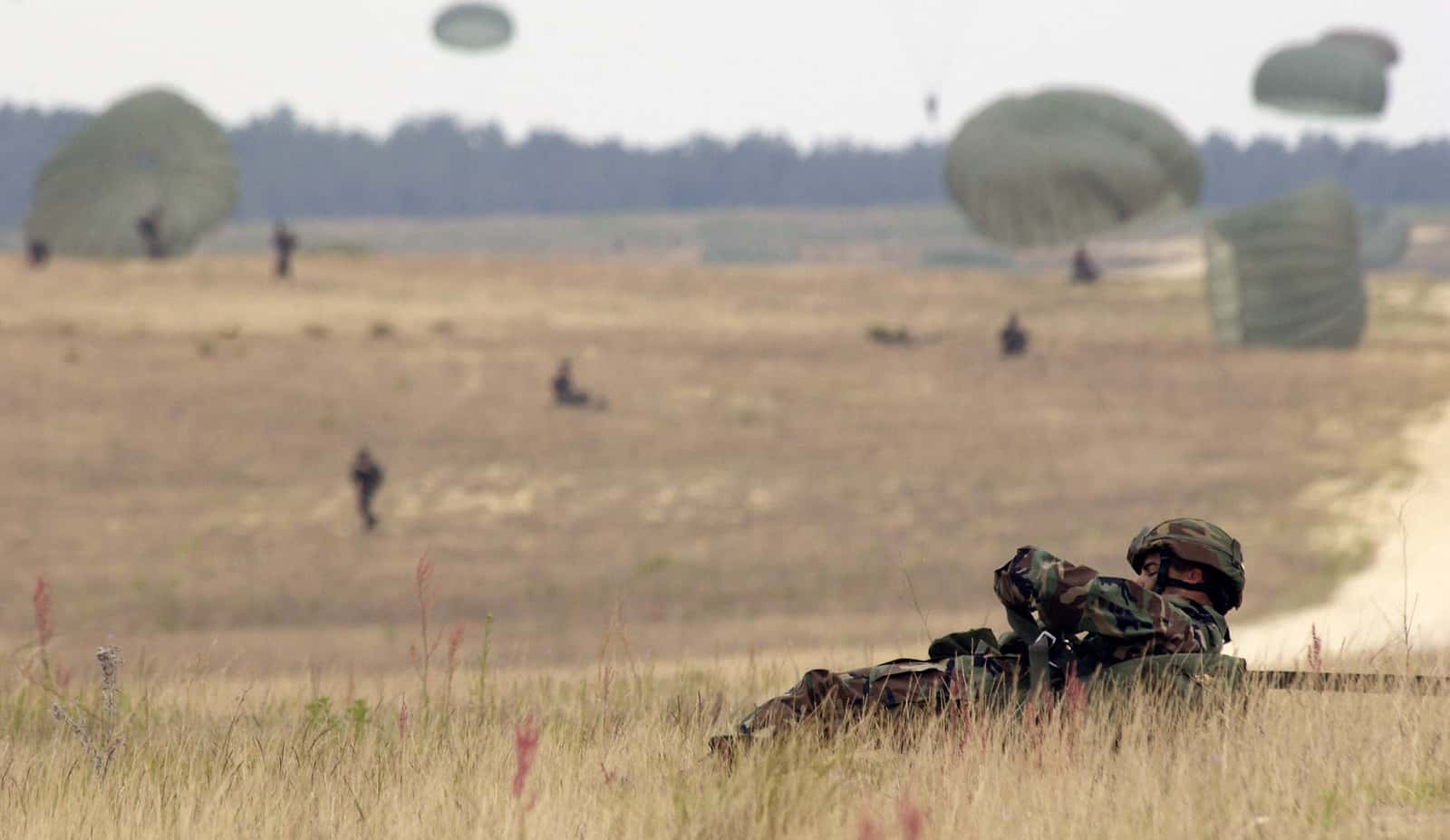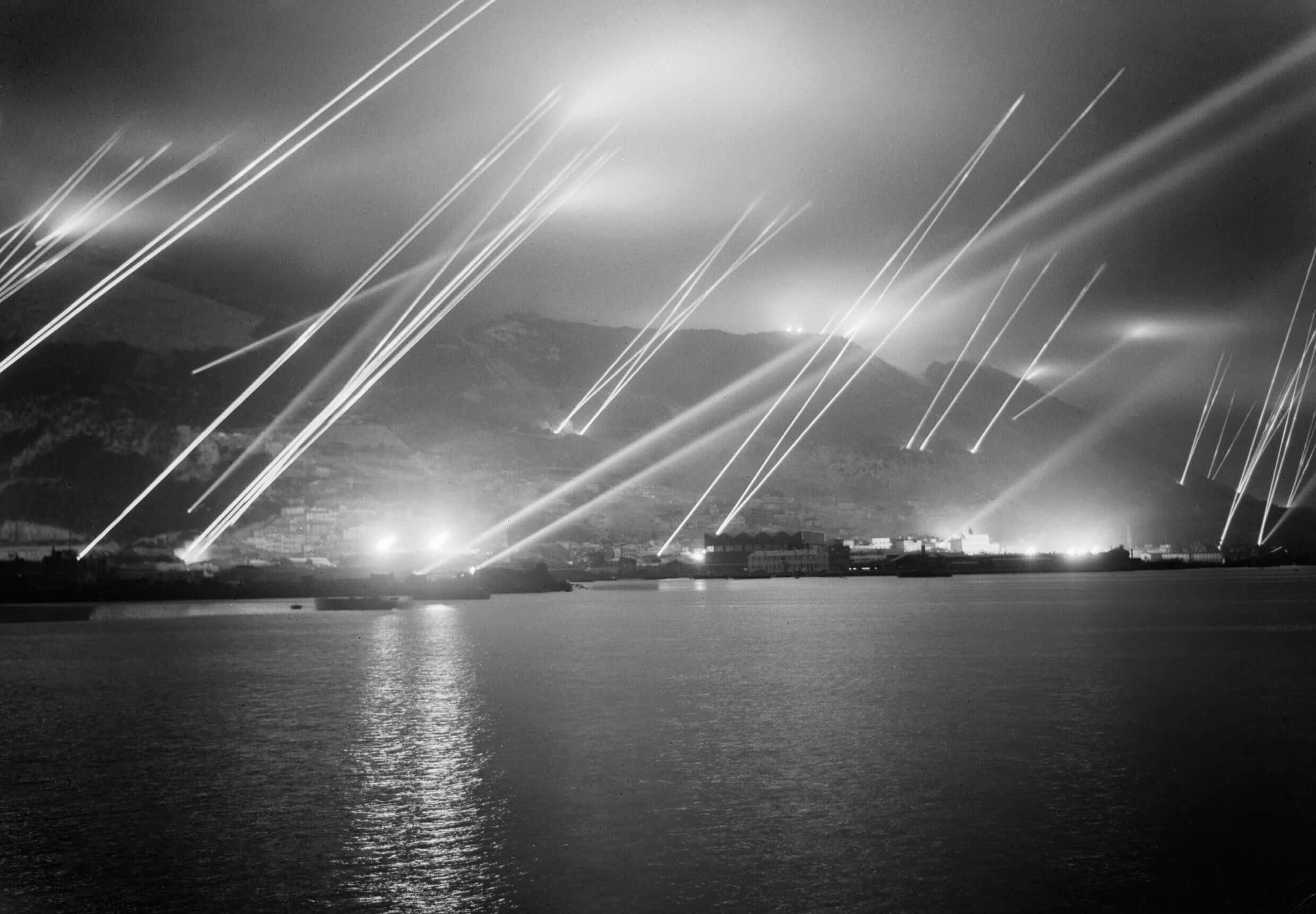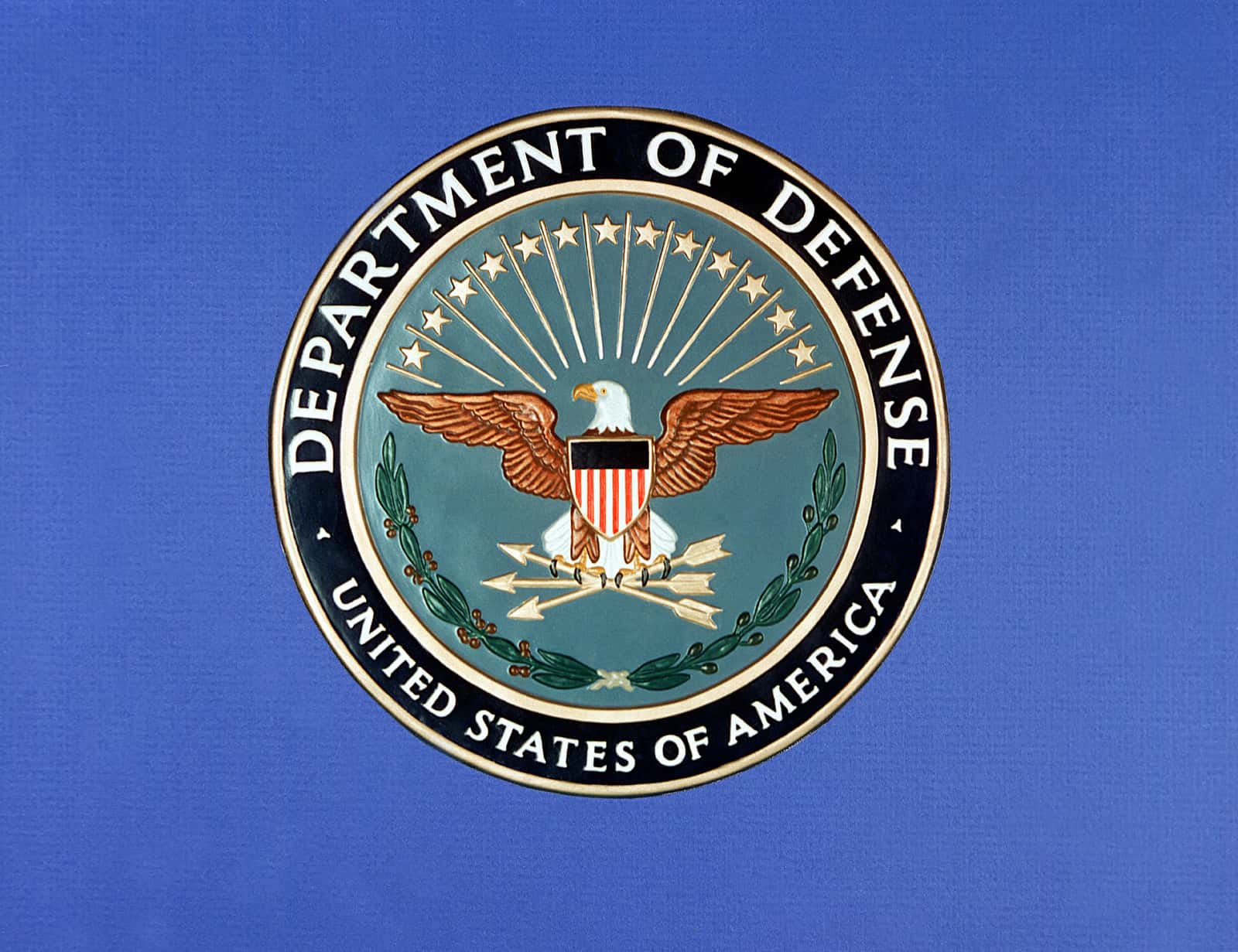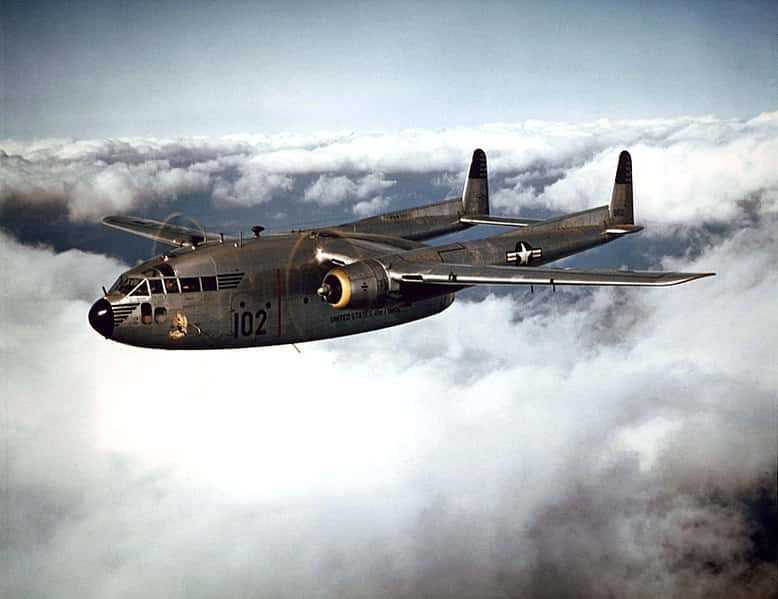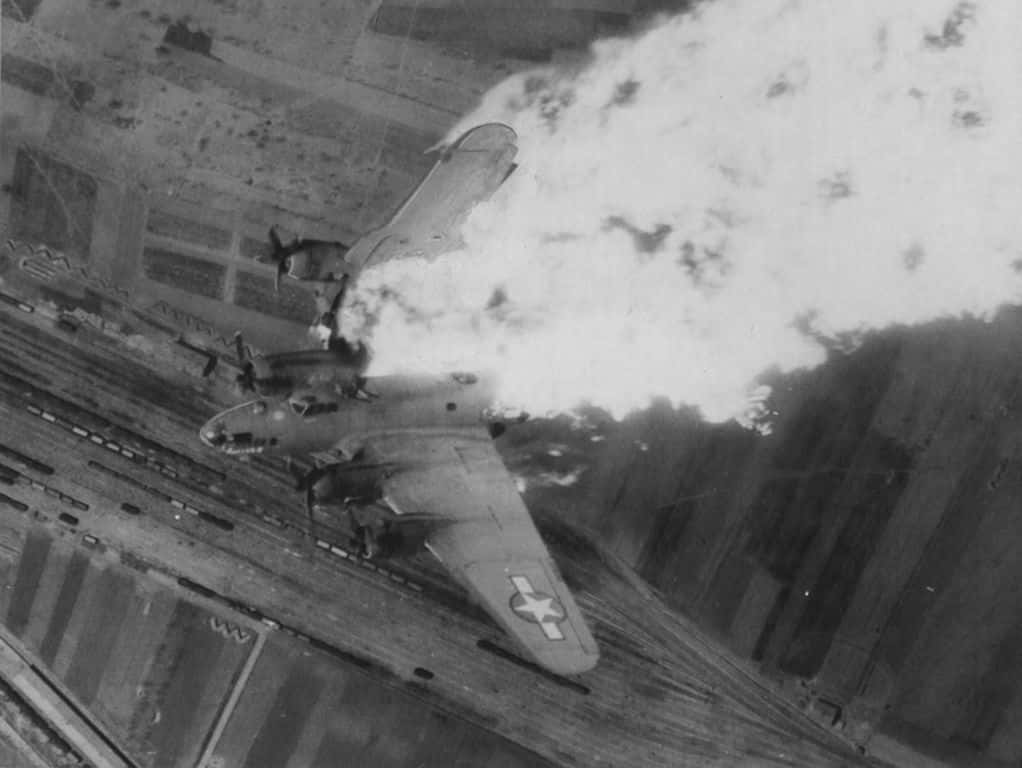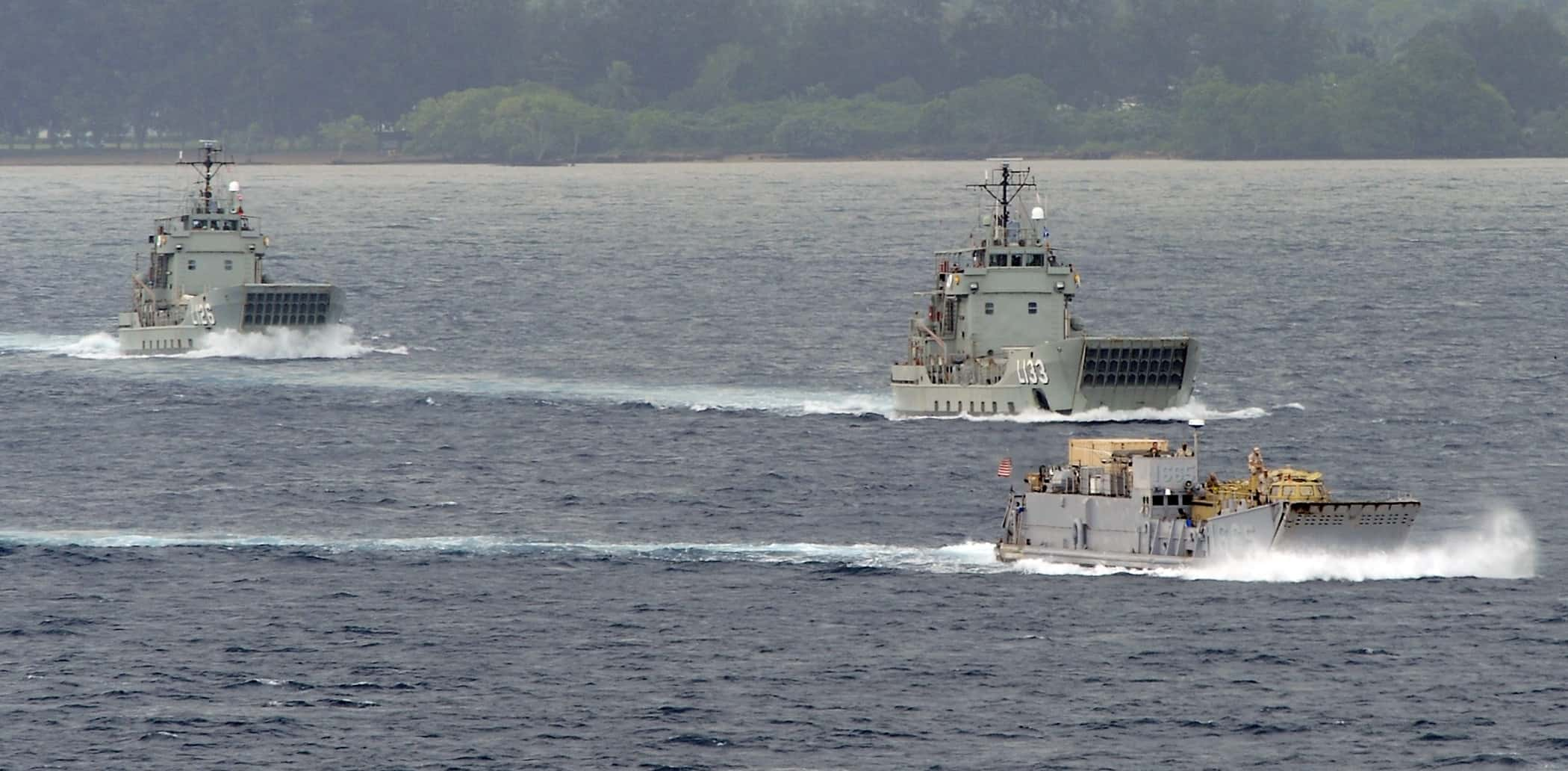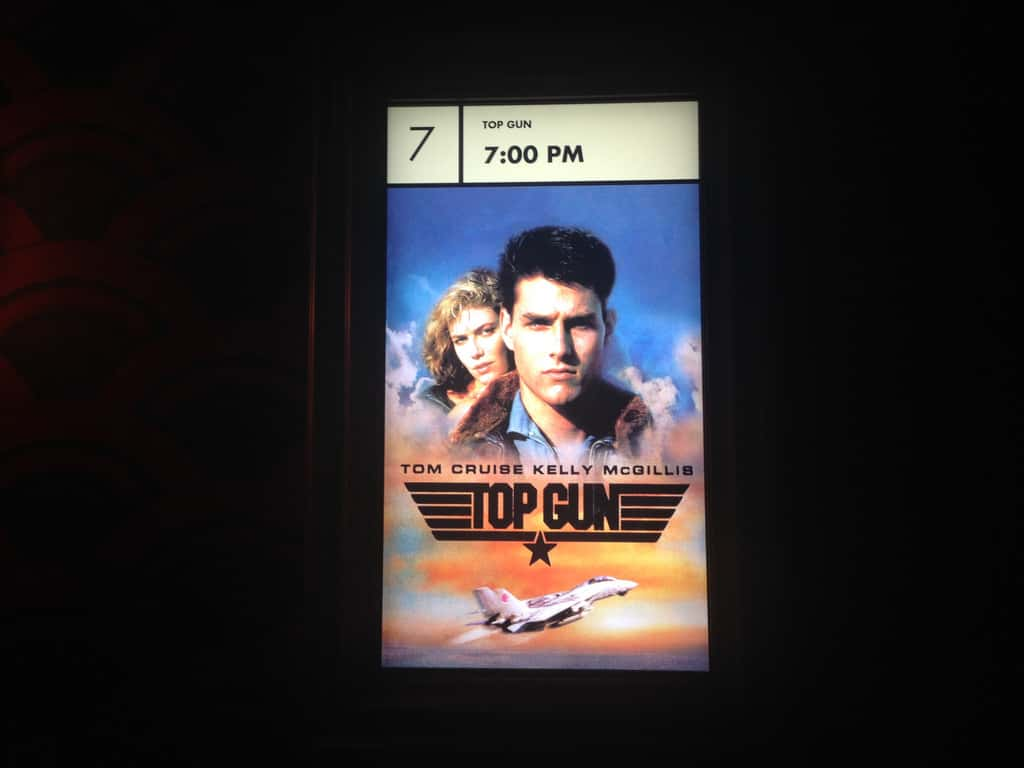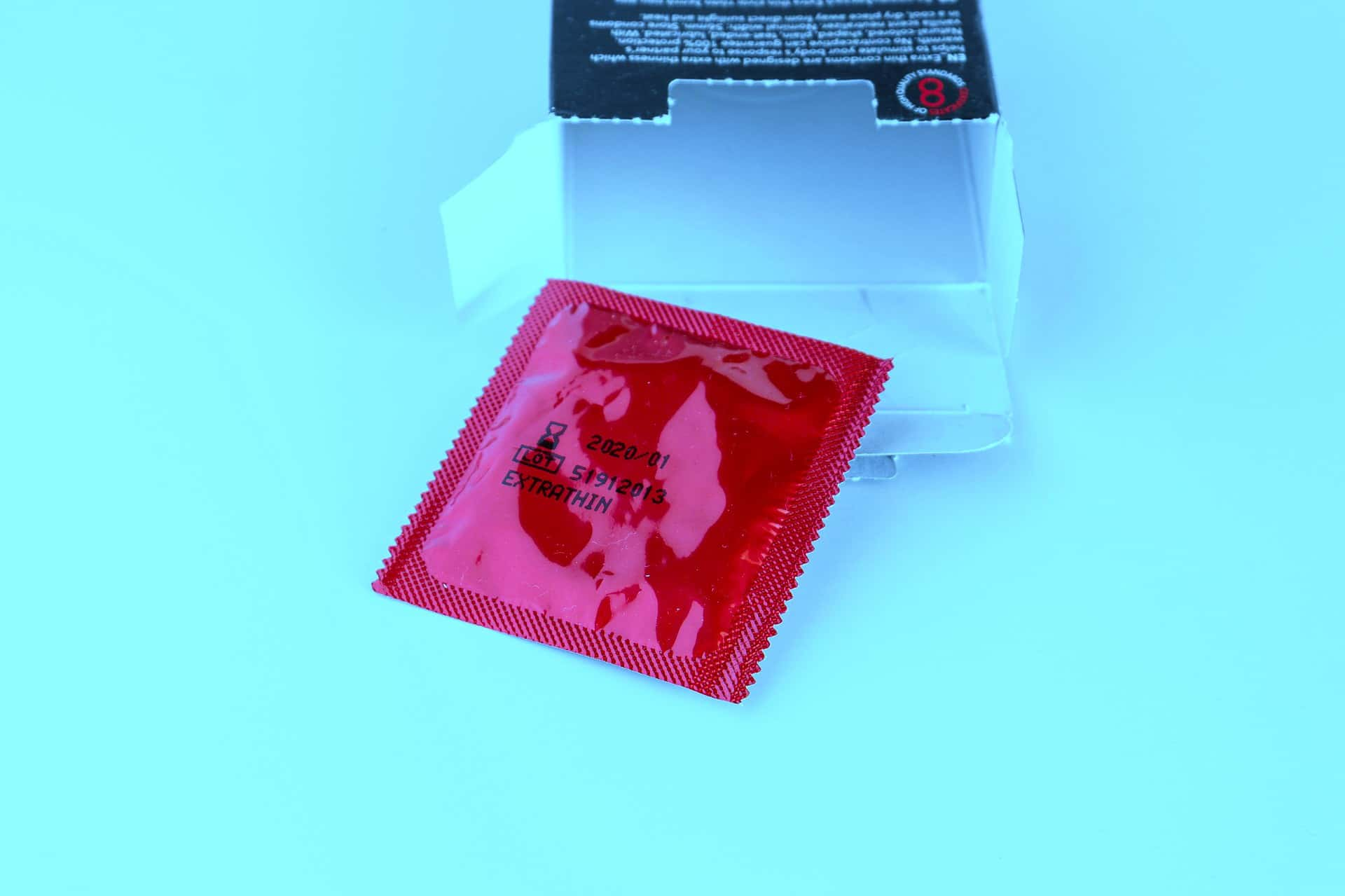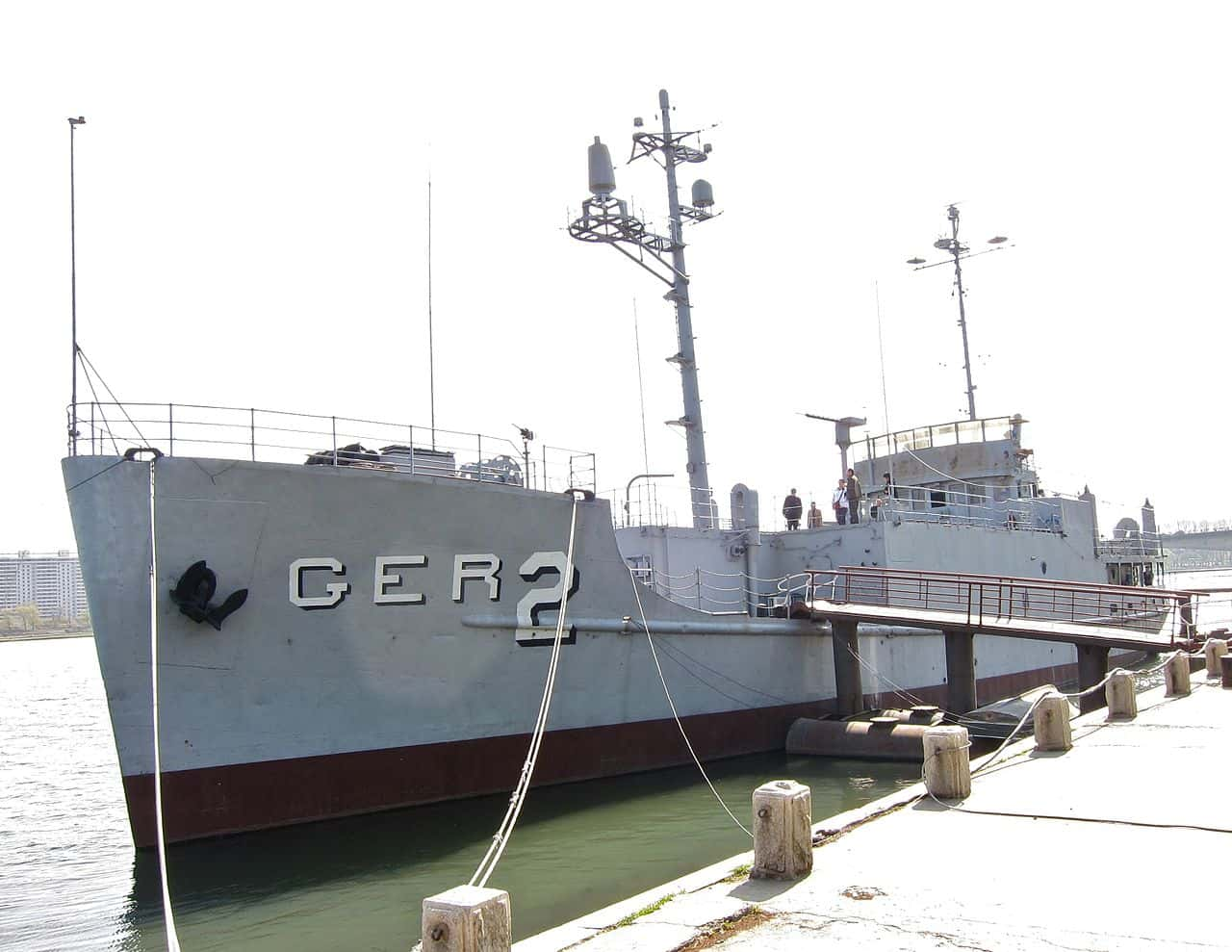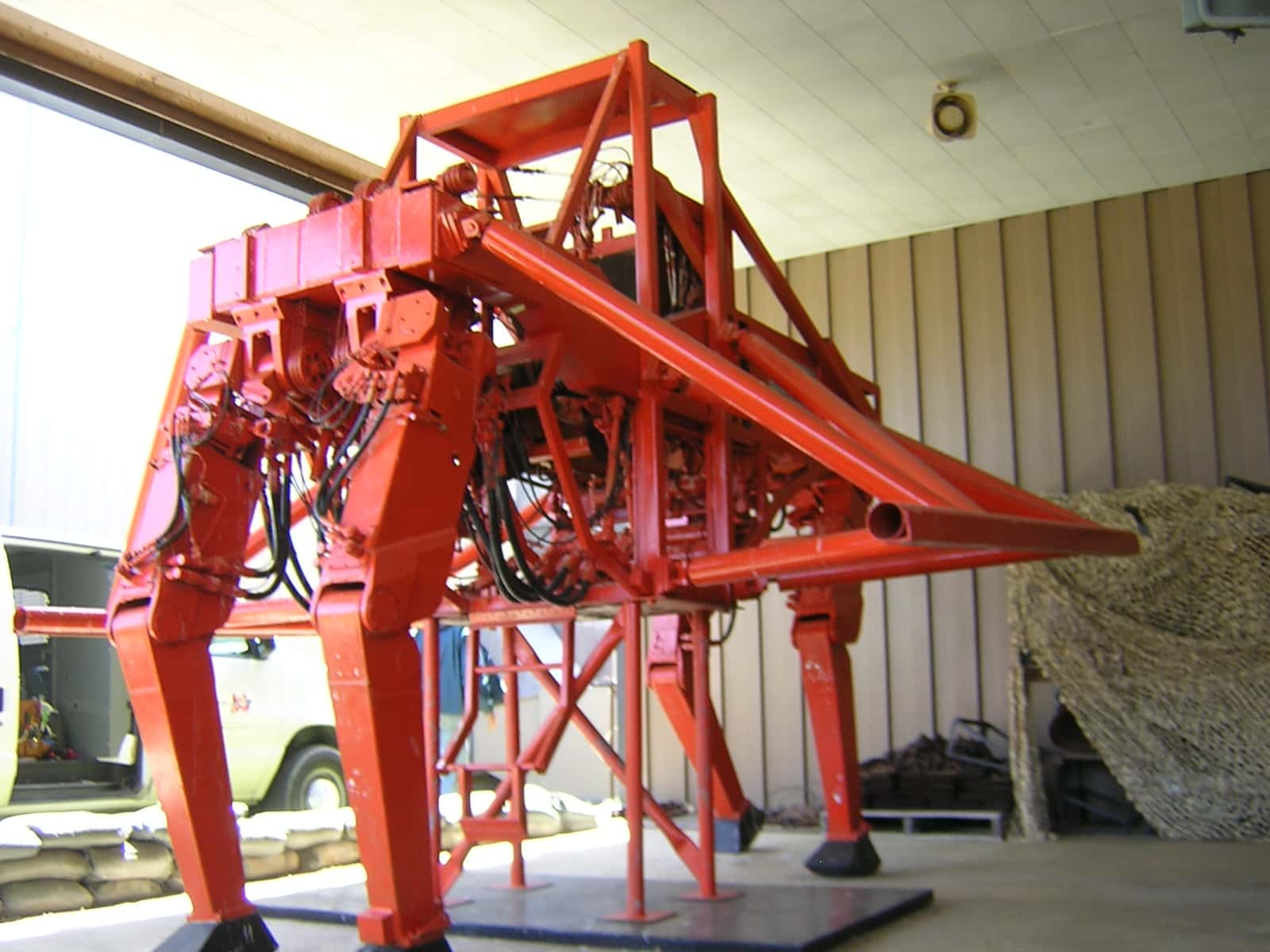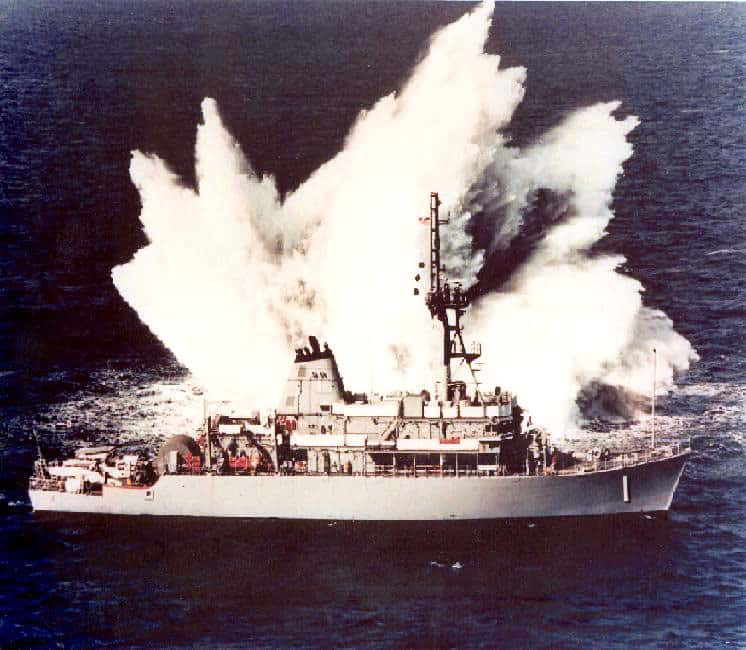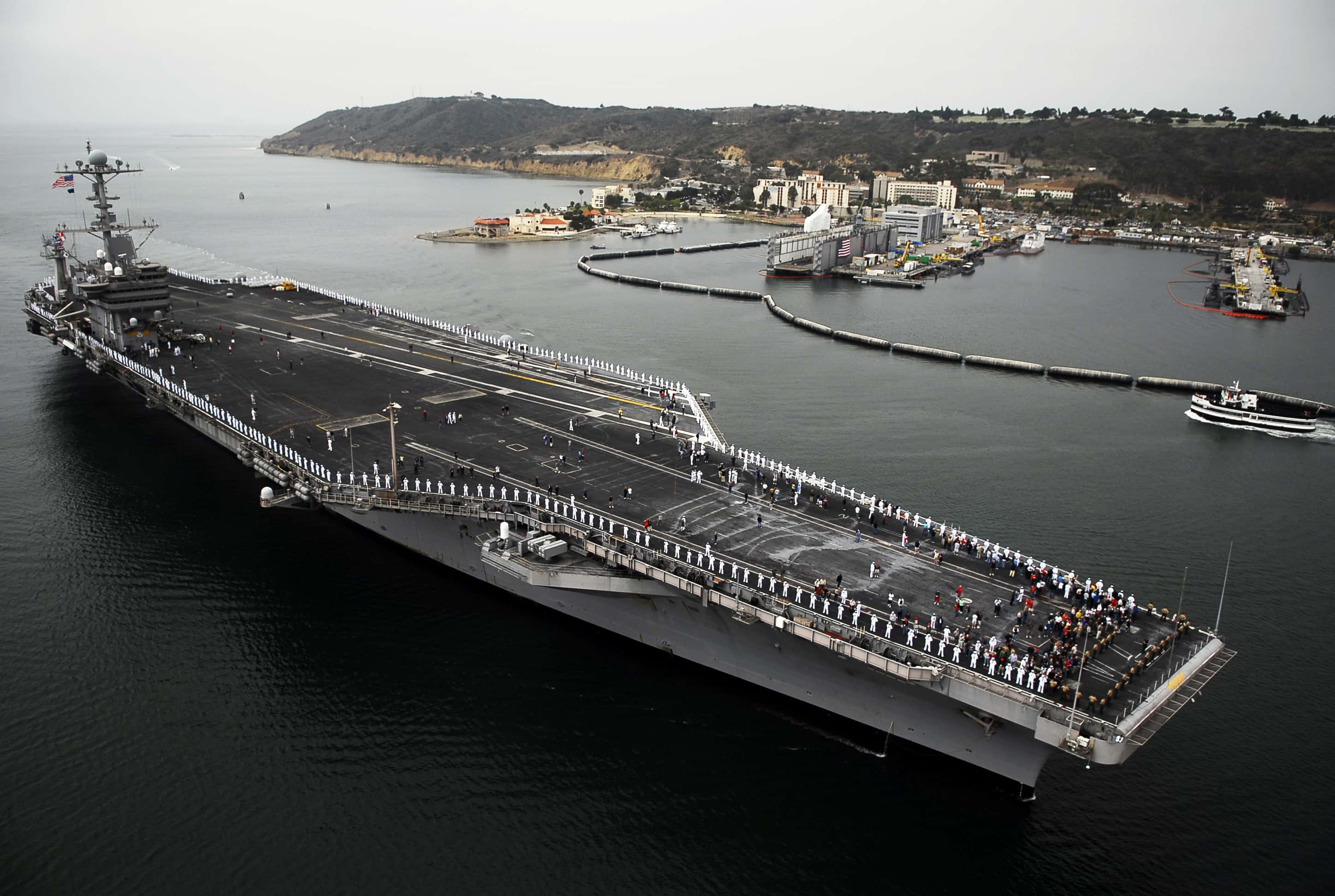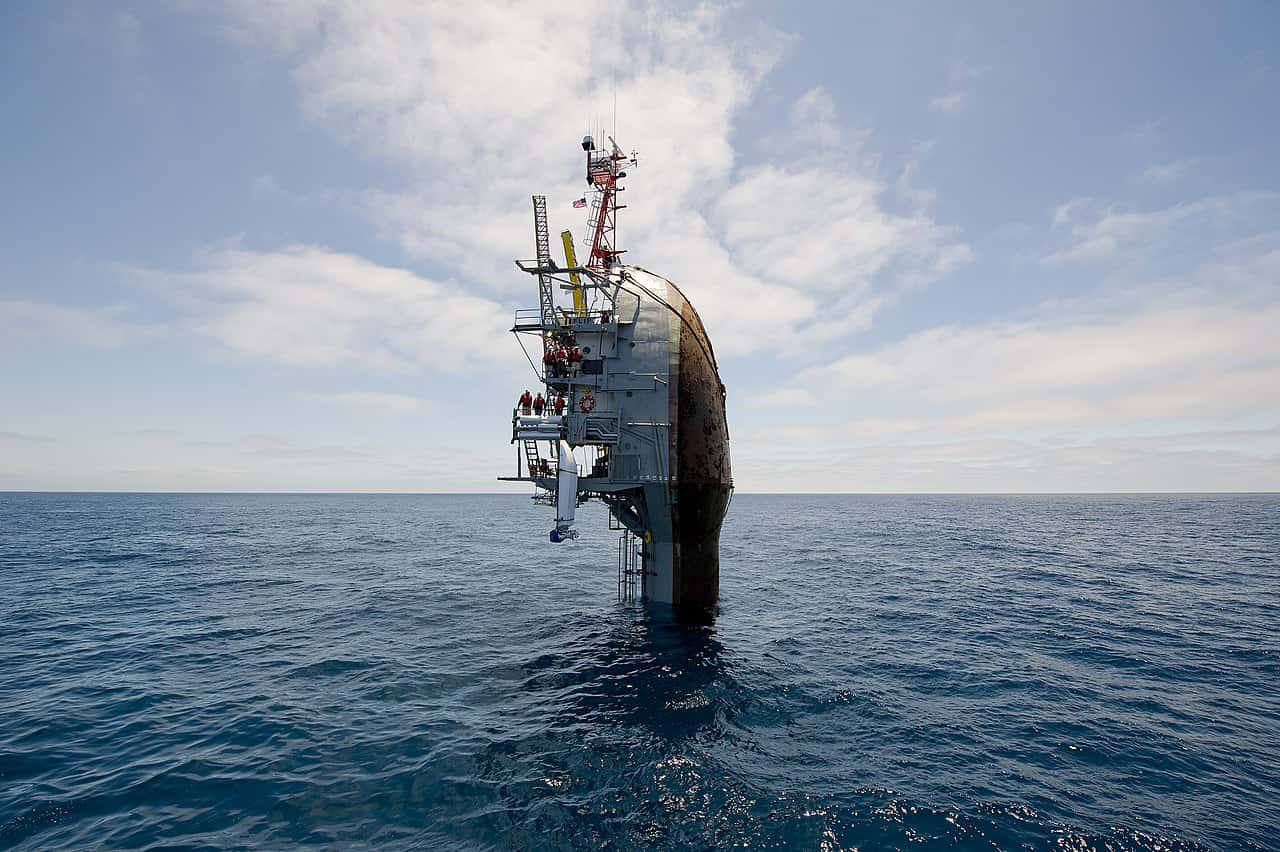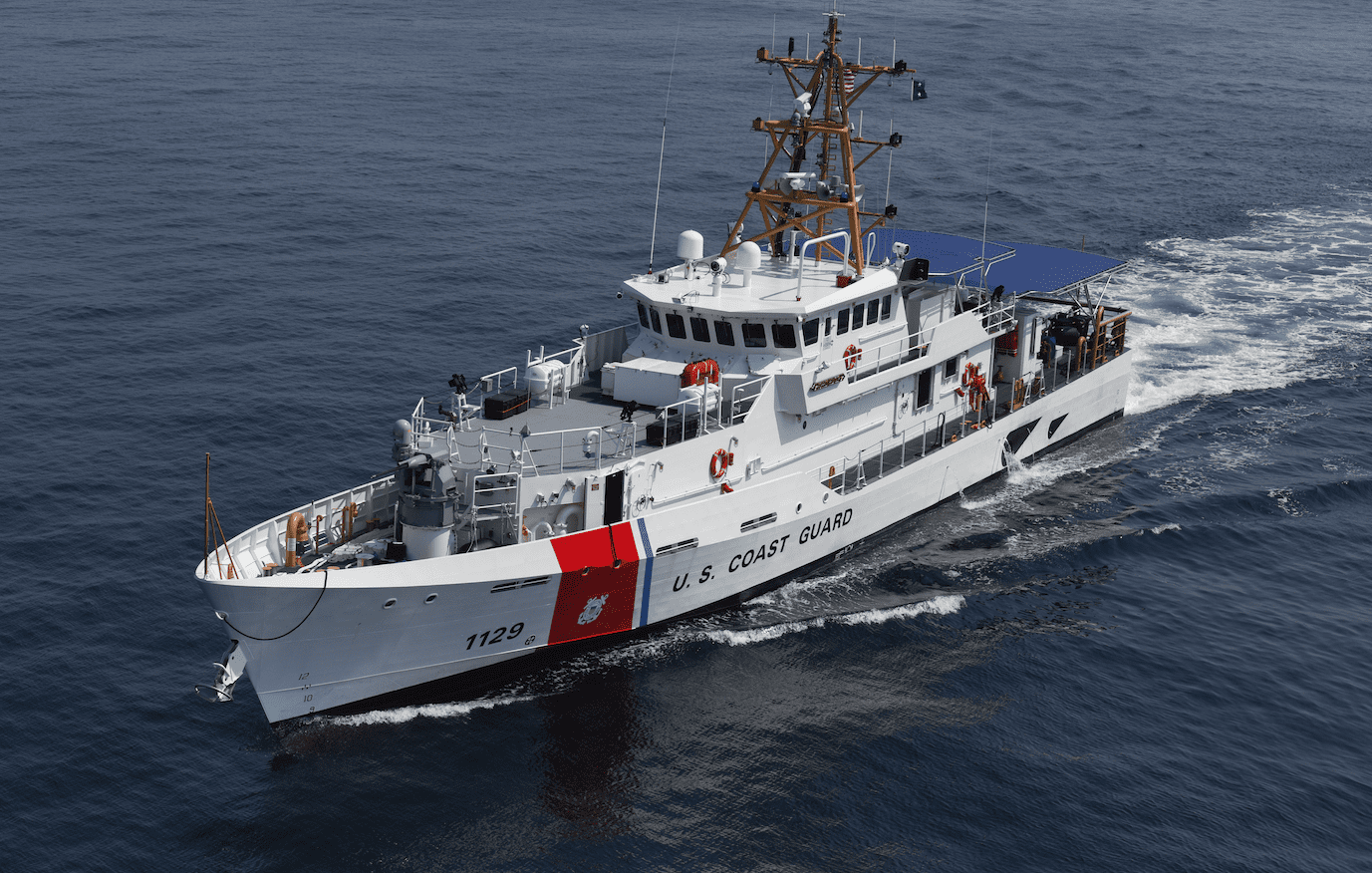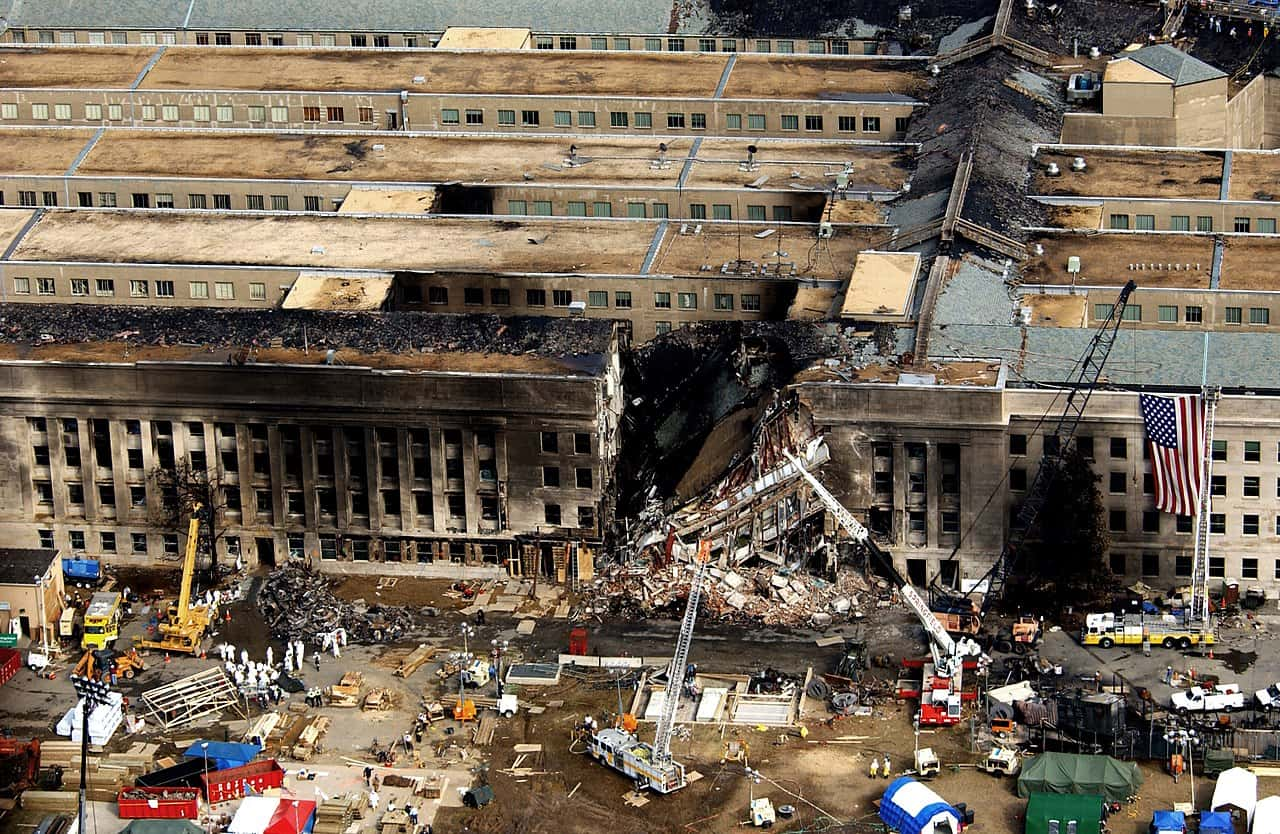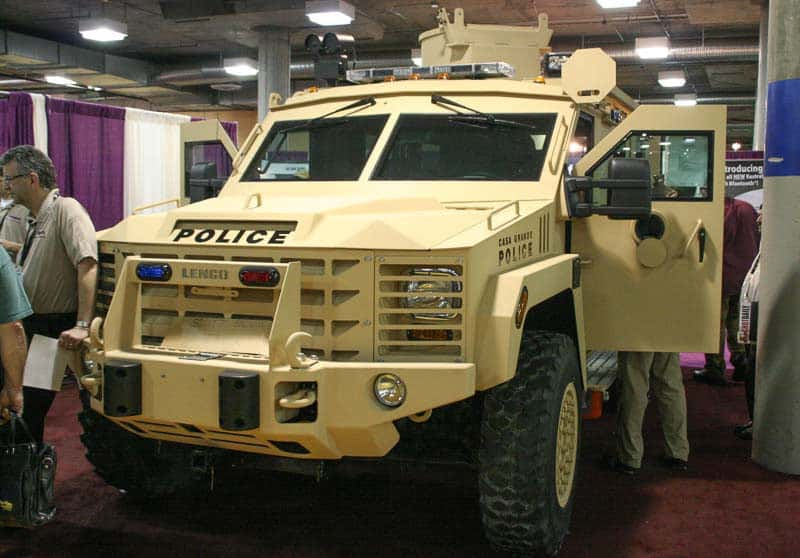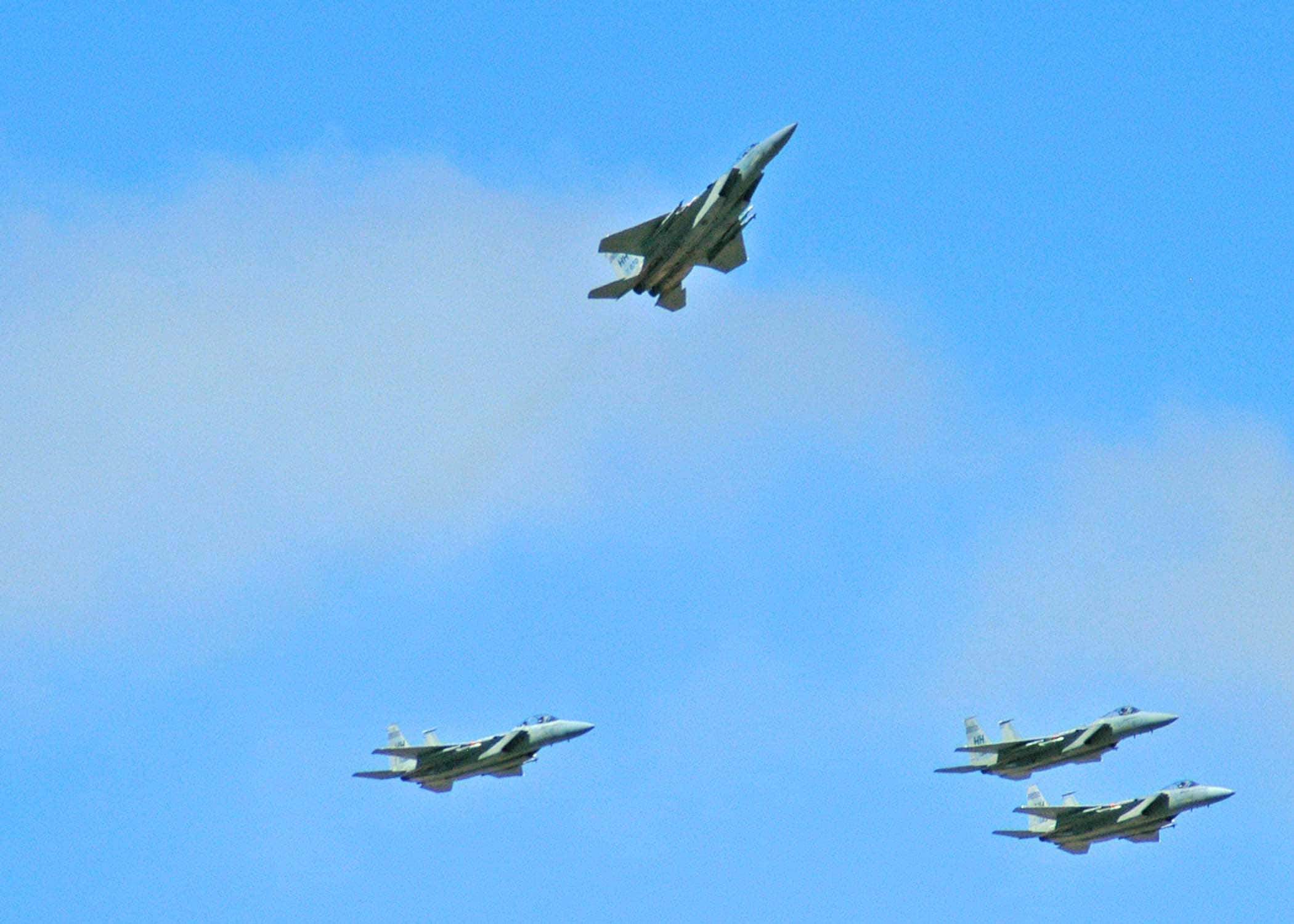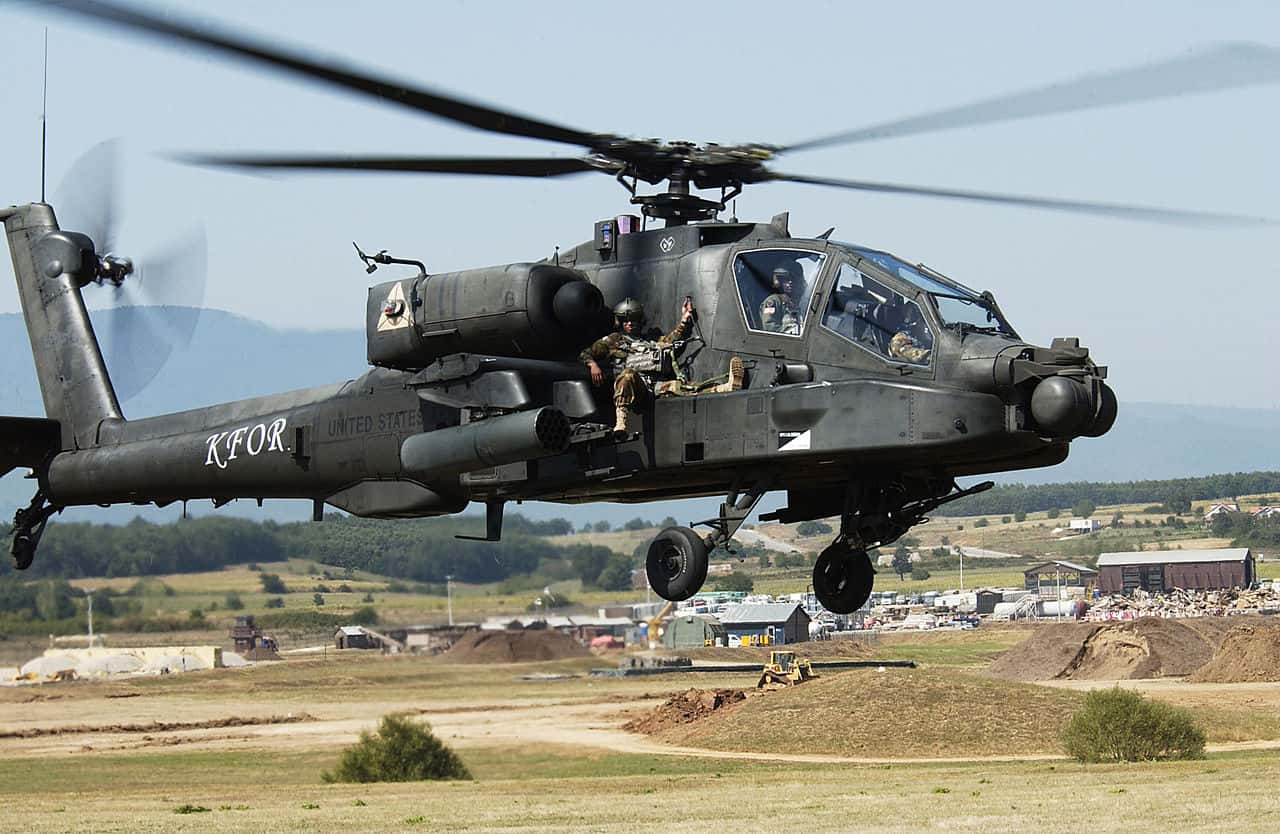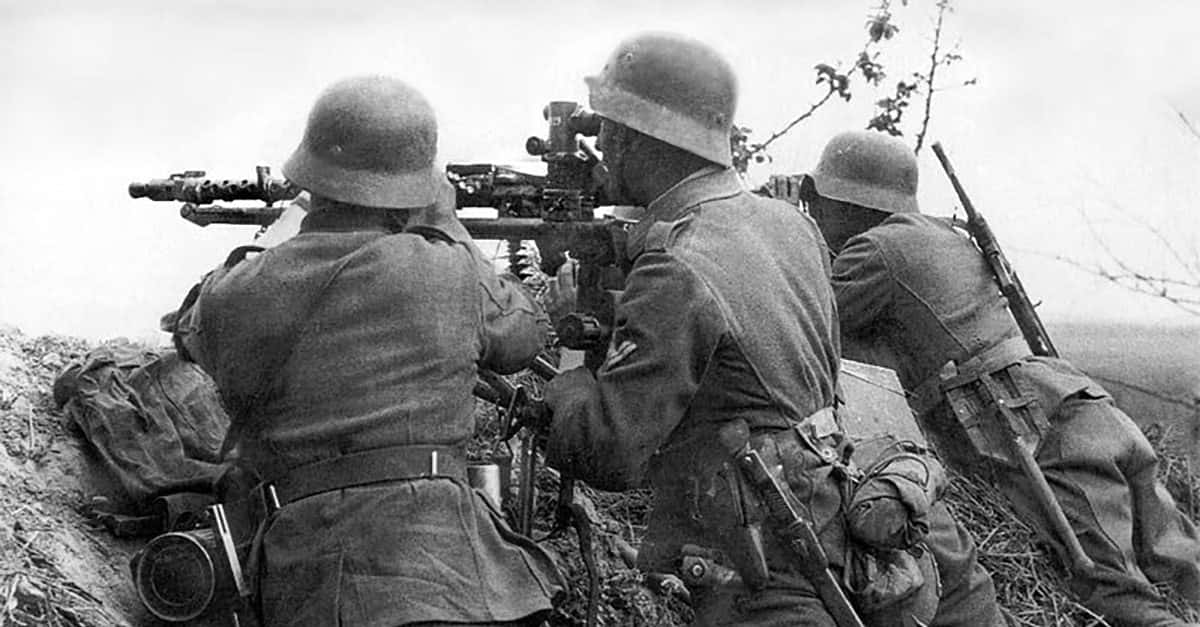Composed of the Army, Marine Corps, Navy, Air Force, and Coast Guard, the U.S. Armed Forces is one of the world's largest and most powerful militaries. Under the direct command of the President of the United States (who serves as Commander-in-Chief), and controlled by the Department of Defense, the 2-million(ish) men and women of the United States Armed Forces serve to protect and advance the interests of Americans, at home and abroad.
Here are a few things you might not know about the U.S. military.
44. Happy... June 14th?
The US Army is actually older than the United States itself.
At the outset of the Revolutionary War against the British, colonial rebels had no access to a standing army. Up until that point, individual colonies had protected their interests through the force of militias, which were little more than haphazard collections of part-time fighters.
So on April 23, 1775, in order to prepare for a full-blown military engagement with the British, the Massachusetts Provincial Congress called for an organized colonial army of 26 regiments. It was the first formalized authorization of a continental army. Later, this authorization would be further ratified by the 2nd Continental Congress, on June 14, 1775, which is celebrated as the birthdate of the US Armed Forces to this day.
43. You Got Served
America has a fairly long and consistent tradition of electing veterans to the highest office in the land. Of the 45 men to be elected as President of the United States, 32 of them had served in the military in some capacity.
15 presidents served in the Army/Army reserve, nine of them served in state militias, six served in the Navy/Naval reserve, two served in the Continental Army.
General Dwight D. Eisenhower, 34th President of the United States
42. They Helped Put America on the Map
In 2018, it might be hard for us to imagine a time when actually mapping the country was still a legitimately challenging proposition. Near-perfect maps at the touch of a finger are just something we take for granted as part of daily life.
But in the early days of the United States, not only was cartography an imperfect science... the lack of accurate maps of U.S. was also a serious threat to national security. Thus, the U.S. Army was actually in charge of exploring and mapping most of America. For example, the Lewis and Clark Expedition was composed of Army officers and non-commissioned officers.
41. Let ‘Er Rip!
The military has a silent version of Velcro that reduces the ripping noise by 95%. However the military has started replacing Velcro with buttons as buttons are silents and are not affected by mud.
40. The Day of Days
Armed Forces Day was created in August of 1949 and first observed on May 20th, 1950.
It replaced the separate Army, Navy, Air Force, Marine Corps, and Coast Guard Days.
39. May I?
Because the National Guard and Reserve units have unique training schedules, they are allowed to celebrate Armed Forces Day/Week at their own convenience, anytime during the month of May.
38. That Includes the Cheese
The Pentagon is the headquarters of the U.S. Department of Defense... the organization responsible for maintaining and organizing the standing U.S. Army. It employs about 24,000 people in Arlington County, Virginia.
The current building was constructed during World War II. The size and scope of the military had expanded massively, in response to the ongoing conflict, and so the logistics and organizational efforts of the Department of Defense required a larger, more robust complex. It's for this reason that, unlike many other distinguished buildings (both military and civilian), the Pentagon contains no marble. Italy is the world's main source of marble... but their materials were pretty much off the table, as the country fought alongside Nazi Germany and the other Axis powers.
Obviously, it would hardly have been convenient to put the entire war on hold, just so the Pentagon could get some good marble for its foyer. So they had to go without. Then again, considering the Pentagon is the world's largest office building by a large amount, with about 6 million square-feet of space at its disposal, it's not like the building isn't already impressive enough as it is.
37. Makes Cents
As should be expected, the defacto-currency in U.S. military bases around the world is... the U.S. dollar. Of course.
But, although your greenbacks will no doubt be accepted, there is actually one form of American currency that simply won't work: the penny.
Shops at US military bases around the world have chosen not to take pennies in a transaction. They reckon that the cost of shipping all those little Abe Lincoln's all around the world actually adds up to more than the value of the coins themselves.
So there you have it: in the eyes of the American military, the U.S. literally isn't worth its own weight.
36. A Small Nation
As of 2017, there are 1.4 million personnel on active duty for the U.S. Armed Forces. That goes along with another 800,000 on reserve, for a grand total of 2.2 million.
The U.S. military has a population larger than some small countries. So when you hear about the absolutely gargantuan costs of clothing, feeding, and housing our troops, you begin to understand why.
35. A Deployer Employer
The Army is America’s second largest employer. The largest employer? Walmart. But they don’t have those super awesome tanks. We don’t think.
34. Well Isn’t That Special?
The most common rank among U.S. Army soldiers is, by far, Specialist. Across active duty and reserve ranks, specialists make up over a quarter of the U.S. Army.
Formally, the rank of Specialist makes up one of the four classes of junior enlisted ranks in the Armed Forces. It is considered to be above Private, First Class.
Interestingly, while a Specialist is equal in terms of paygrade to a Corporal, they are not considered to be Non-Commissioned-Officers, whereas Corporals are. This positions a Corporal higher on the hierarchical totem-pole than a Specialist, despite their being paid a similar amount. All of this has led to the insignia of the U.S. Army Specialist to be referred to among other members of the service as the "Sham Shield"... the idea being that any person who has risen to the rank of Specialist without earning the distinction of Corporal, is most likely incapable of leadership. The "Sham Shield" is said (unfairly, we should add) to be the mark of a potentially incompetent person.
33. This Land is Our Land
The Army owns 24, 000 square miles of land.
That means if the U.S. Army were a state, it would be the 42nd largest in America
32. The Forecast was...
In 1942, the US military responded to a suspected Japanese air raid over Los Angeles by firing 1,400 anti-air artillery shells and thousands of .50 caliber rounds. It turned out to be a weather balloon, but they sure showed that weather balloon what’s what.
LA harbor lit up with searchlights
31. Gassy
One interesting and under-
During World War II, supporting a single soldier on the battlefield took about one gallon of fuel per day.
Today, though, our fuel consumption. an individual soldier requires more than 22 gallons of fuel per day.
30. Really Gassy
The US Army burns through nearly a billion gallons of fuel every year. However, the Department of Defense is been trying to bring down its energy usage citing a dependence on fossil fuels as a major national-security risk and logistical problem for troops in the field.
29. Defense! Defense! Defense!
After World War II, the Department of War was renamed the Department of Defense.
28. The Bigliest Military
The US military budget is largest in the world and currently spends around US $600 billion per year, which is more than the next seven nations combined. They have proposed increasing military spending by another $54 billion in 2017.
27. Say It, Don’t Spray It!
In the 60s, the US military secretly sprayed zinc cadmium sulfide on thousands of people in "a densely populated slum district." in St. Louis. They said it was a smoke screen test in case the Russians attacked but in 1994 the government revealed it was a part of a biological weapons program known as Operation LAC (Large Area Coverage).
A C-119 Flying Boxcar, the type of plane used to release the chemicals
26. What Happens in Niš
The only direct military confrontation between the US and the USSR happened in October of 1944 over the Serbian town of Niš. Officially, each country mistook the other for Germans but the fine details are still top secret.
B-17 hit by flak over Nis
25. And That’s the Depleted Version
The US and Russian military use extremely dense depleted uranium bullets that can pierce vehicle armor. Once the bullet pierces the armor, it gets sharper and catches fire, hopefully igniting fuel and causing the vehicle to explode.
24. The Nerve!
The US Army secretly dumped millions of pounds of nerve agents into the ocean in at least 26 locations off both coasts. Ships were loaded with containers of the gasses, towed to deep water dump sites and were sunk. They can’t say exactly where they were dumped because the records are either sketchy, missing, or destroyed.
23. Highway to the Danger Zone
Navy recruiters staked out movie theaters after the release of Top Gun in 1986 and, according to the US Navy, the number of men who wanted to become Naval Aviators went up by 500 percent.
22. Multipurpose
Part of the standard US military standard Parachute Park Survival Kit (SRU-16) is a non-lubricated condom. Apart from its originally intended function, it can also serve as an emergency canteen capable of holding up to 1 litre of water.
21. All Hail Great Leader
The US Navy has only ever had one ship captured. In 1968, North Korea captured the USS Pueblo, a spy ship. The ship is currently a tourist attraction in Pyongyang.
20. These Trucks Were Made For Walking
Also in 1968, the US Army developed a four legged robot called the Walking Truck that was powerful enough to lift a car. It never made it into service because operating it was apparently exhausting, thus defeating the purpose of having a robot in the first place.
19. Whatever Floats Your Boat
The US Navy still operates ships with hulls made of wood. These ships, known as avenger-class ships, are designed to clear mines from important waterways.
18. That’s Super
The USS John C. Stennis, a 1,092 foot long nuclear-powered super-carrier has a more powerful air force than 70% of all countries.
17. Portraits vs. Landscape
The US Navy has a special research vessel called the FLIP (Floating Instrument Platform) that can operate both vertically and horizontally. Each room has two doors for each configuration and the toilet seats even flip 90 degrees. It also very often confuses other ships, who think it’s a capsized vessel. You could say it… flips people out.
16. The Coast with the Most
Every day, the Coast Guard seizes 169 pounds of marijuana and 306 pounds of cocaine, worth about $9,589,000.
15. More of a Casual Declaration
US Congress has only officially declared war eleven times. Instead of formally declaring war, the US has instead been using the term “authorization to use military force,” which is really just a euphemism for “opening a can of whoop-ass.”
14. Just a Wee Bit Excessive
Since 1945, the United States has produced more than 70,000 nuclear warheads, which is more than all the other nuclear weapon states combined. It would only take a fraction of those warheads to render the earth uninhabitable. The budget for nuclear weaponry actually does not fall under the Department of Defense, but the Department of Energy, which… makes sense.
13. Seeing Stars
The United States has not had a 5-Star General since Sept. 22nd, 1950. Only nine people have ever held that distinction.
US President Harry Truman pinning the five-star general insignia onto Omar Bradley's uniform
12. Trash Talk
In Afghanistan, the US military’s psychological warfare department (PSYOPS) used loudspeakers to try to taunt enemy fighters into unwinnable battles by calling them “lady men” and “cowardly dogs.”
11. Penta-Gone
A single day in Afghanistan costs the government more than it did to build the entire Pentagon, which means that if it weren’t for the Taliban, we could have SO many Pentagons right now.
10. Iraq-ing up a Bill
In 2008, the Pentagon spent more money in five seconds in Iraq than the average American earned in a year.
9. The Excess
The Department of Defense Excess Property Program hands out over a half-a-billion dollars in free surplus military-grade weaponry to state and local law enforcement every year.
The resulting "militarization" of local-level law enforcement has thus been a contentious issue in U.S. politics. Some argue that the increasingly well-equipped officers of the law are a necessary response to the changing dangers of the 21st Century. Old-school tactics, they argue, just wouldn't suffice today. Meanwhile, others see the build-up of hardware as a growing danger to the fundamental principles of liberty. After all, what can common citizenry do against such formidable displays of strength? The Revolutionary War would have been a whole lot shorter if the British loyalists were fighting muskets with 10-foot-tall "Fortified Vehicles"...
8. It Only Does Everything
In 2010, the US government used 1,760 PlayStation 3s to build a supercomputer for the Department of Defense because it was both cost and environmentally efficient.
7. This is Why We Can’t Have Nice Things Anymore
Until WWII, the shoulder insignia of the US Army’s 45th Infantry Division contained the swastika, which was a common Native American symbol at the time. And then some guy with a stupid moustache ruined it for everyone.
6. Poppycock
In 2007, the US Defense Security Service issued a warning that Canadians were planting spy coins on US army contractors. The coins turned out to be quarters with the colored Remembrance Day poppy.
5. Up Up and Away
The US Air Force honors their dead with a fly-by salute known as “The Missing Man” in which the formation flies low and the leader’s wingman performs a rapid climb, representing an ascent to heaven.
4. All About Optics
In 1929, US Army Air Corps Colonel John Macready asked Bausch & Lomb, then an optical lens company, to invent sunglasses that would ban the sun’s rays and prevent his pilots from getting headaches. This is how Ray Bans were born.
3. Get to Da Choppa!
The reason why many US Army helicopters (Apache, Lakota, Cheyenne) are named after Native American tribes is because the first US Air Force bases were located on native reserves.
2. PETA Is Not Impressed
The US Navy has a program that trains sea lions and dolphins to perform tasks such as ship and harbor protection, mine detection and clearance, and equipment recovery. But if there’s anything we’ve learned from Finding Nemo, it’s that seagulls are the ones who are really good at detecting mines.
1. Unidentified Jolly Object
On Christmas Eve in 1955, a newspaper ad told kids they could call Santa and published his number. Unfortunately, they published the wrong number and the calls went to US Air Defense Command. The colonel on duty told his team to give kids Santa’s “current location.” This has since become a tradition and they take calls from over 200 countries.


